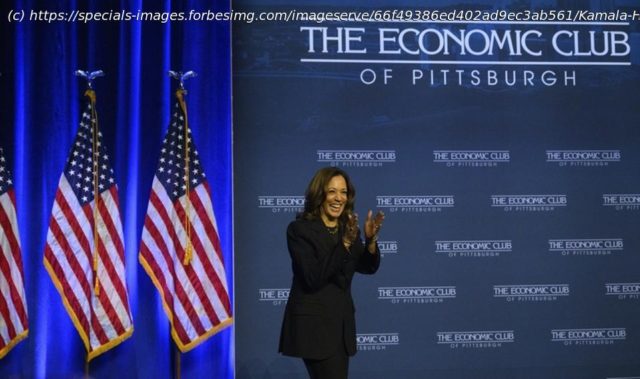Learn 5 ways blockchain can enhance Kamala Harris’s Opportunity Economy, from boosting clean energy to democratizing financial services.
In a speech at The Economic Club of Pittsburgh on Sept. 25, 2024, Vice President Kamala Harris outlined her vision for an “Opportunity Economy” — a strategy focused on strengthening the middle class, fostering innovation, and ensuring America’s leadership in key industries like clean energy and emerging technologies. Harris emphasized creating jobs, lowering costs for middle-class families, and investing in innovation as central pillars of her plan.
As a legal, policy and economic justice expert in digital assets and blockchain, I see a tremendous opportunity for this technology to drive real, meaningful change. Blockchain’s ability to foster transparency, decentralization, and trust without intermediaries can redefine industries, expand access to financial services, and create a more equitable economy. Below, I highlight five key areas where blockchain can accelerate Harris’s Opportunity Economy, positioning America as a leader in the digital future. These opportunities are not just theoretical; they represent real pathways to innovation and inclusive growth.
1. Empowering Middle-Class Financial Inclusion Through DeFi
One of Harris’s primary goals is to lower costs for middle-class families, particularly in housing, childcare, and eldercare. Blockchain’s decentralized finance (DeFi) solutions can be a powerful tool in this effort. DeFi platforms allow users to access lending, borrowing, and saving services without relying on traditional banks, which often charge high fees and impose barriers to entry.
For example, blockchain-based mortgage platforms could streamline the home-buying process, reducing costs and time. Additionally, tokenized real estate allows families to invest in fractional homeownership, helping them get a foot in the door without needing a large down payment. Harris’s vision of wealth-building for middle-class families aligns perfectly with the democratizing potential of DeFi, offering accessible financial products that reduce reliance on intermediaries and promote financial inclusion.
2. Revitalizing Small Businesses with Blockchain-Based Capital Access
Small businesses are the backbone of the American economy, and Harris’s plan to increase access to capital is critical for their growth. However, many entrepreneurs struggle to secure funding from traditional financial institutions. Blockchain can provide new avenues for raising capital, such as tokenization, smart contracts, and decentralized crowdfunding.






